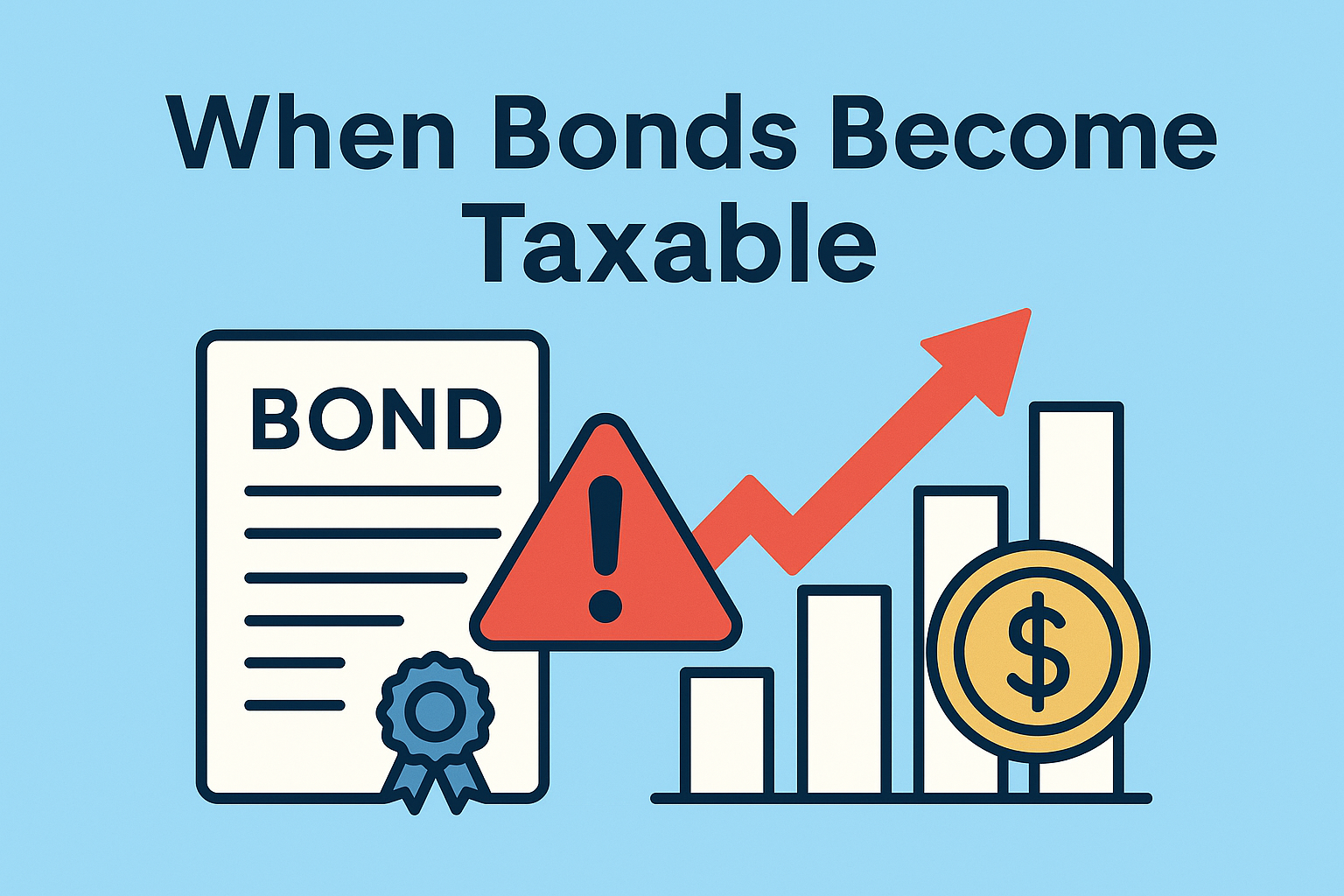Learn how municipal bonds can provide tax-free income and explore strategies to maximize their benefits while managing tax implications.
Municipal bonds are a popular choice for investors because they provide tax-free income, low risk, and steady returns. Here's what you need to know:
- Tax Benefits: Most municipal bonds are exempt from federal taxes. In-state bonds may also avoid state and local taxes.
- Types of Bonds:
- General Obligation (GO): Backed by government taxing power.
- Revenue Bonds: Funded by specific projects like toll roads or utilities.
- Key Tax Rules:
- Federal Tax: Interest is usually tax-free.
- State Tax: In-state bonds are typically exempt; out-of-state bonds are usually taxable.
- Capital Gains: Selling bonds at a profit can trigger taxes.
- Strategies:
- Use bond laddering to manage cash flow and taxes.
- Consider tax-free bond funds for diversification and professional management.
- Be mindful of the Alternative Minimum Tax (AMT) and rules like the de minimis threshold.
Quick Comparison of Bond Taxation
| Bond Type | Federal Tax Status | State Tax Status | Best For |
|---|---|---|---|
| In-State Munis | Tax-exempt | Usually tax-exempt | High-tax bracket residents |
| Out-of-State Munis | Tax-exempt | Usually taxable | Federal tax optimization |
| Taxable Munis | Taxable | Usually taxable | Tax-deferred accounts |
Municipal bonds are an excellent option for tax-conscious investors, but understanding their tax implications is crucial to maximize returns.
What Are Municipal Bonds? Are Municipal Bonds Safe & TAX-FREE?
How Municipal Bonds Are Taxed
This section explains the federal, state, and local tax rules investors need to understand, building on the tax benefits mentioned earlier.
Federal Tax Rules
Municipal bonds often allow investors to avoid federal income tax on interest earnings, but the specifics depend on the bond type. Here's a breakdown:
| Bond Type | Federal Tax Status | Key Details |
|---|---|---|
| Standard Municipal Bonds | Exempt | Regular interest payments are free from federal tax |
| Private Activity Bonds | Potentially taxable | Interest may fall under the Alternative Minimum Tax (AMT) |
| Pension Obligation Bonds | Taxable | Used to fund state pension obligations |
"From an investor's perspective, munis are interesting because they are not taxable on the federal level and often not taxable at the state level."
State and Local Tax Rules
State and local tax policies depend on where the investor lives and where the bond originates. For instance, Washington D.C. exempts all municipal bonds—whether in-state or out-of-state—from local taxes. Utah, on the other hand, applies a reciprocal approach, not taxing bonds from states that don't tax its own.
Here are the general rules:
- In-state bonds: Usually exempt from state and local taxes.
- Out-of-state bonds: Typically taxable by your home state.
- Federal government bonds: Usually free from state and local taxes.
Understanding these rules helps clarify when bonds might lose their tax-exempt benefits.
When Bonds Become Taxable

Municipal bonds aren't always tax-free. Certain situations can trigger taxation:
- Capital Gains: Selling a bond for more than its purchase price results in federal and state capital gains taxes.
- De Minimis Rule: Buying a bond at a discount exceeding a quarter-point per year until maturity means the gain at redemption is taxed as ordinary income instead of capital gains.
- Private Activity: Bonds funding projects without a clear public benefit may be taxed.
"Investors shouldn't take the category names too literally. By way of example, income from 'taxable municipal bonds' may be exempt from some taxes depending on the circumstances. Likewise, realized capital gains from 'tax-exempt municipal bonds' can result in federal income taxation." – MSRB
References
- The Clark Group Asset Management
- Vanguard Tax-Exempt Bond ETF (VTEB)
- Vanguard High-Yield Tax-Exempt Fund (VWAHX)
- Vanguard California Long-Term Tax-Exempt Fund (VCLAX)
- Municipal Securities Rulemaking Board (MSRB)
- IRS Publication 550: Investment Income and Expenses
- Tradeweb Direct
- Running Point Capital Advisors








